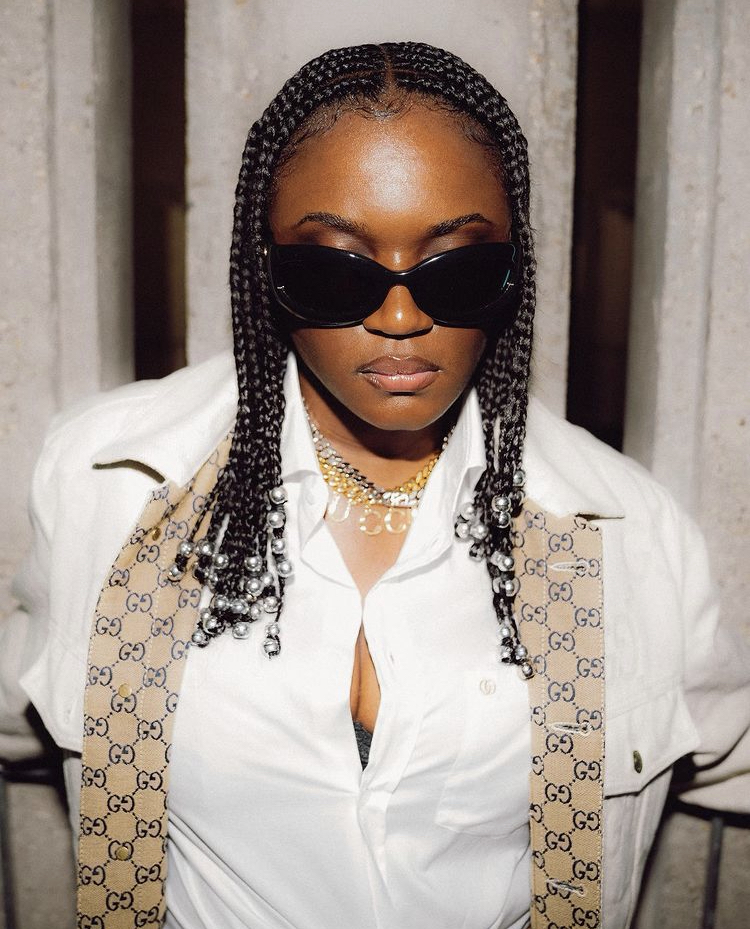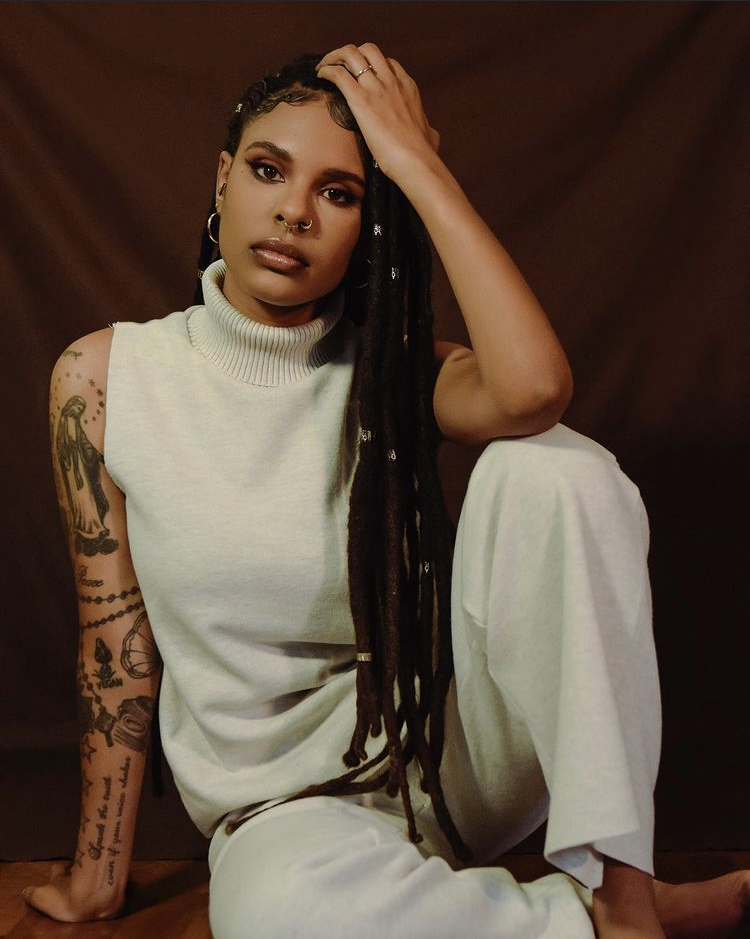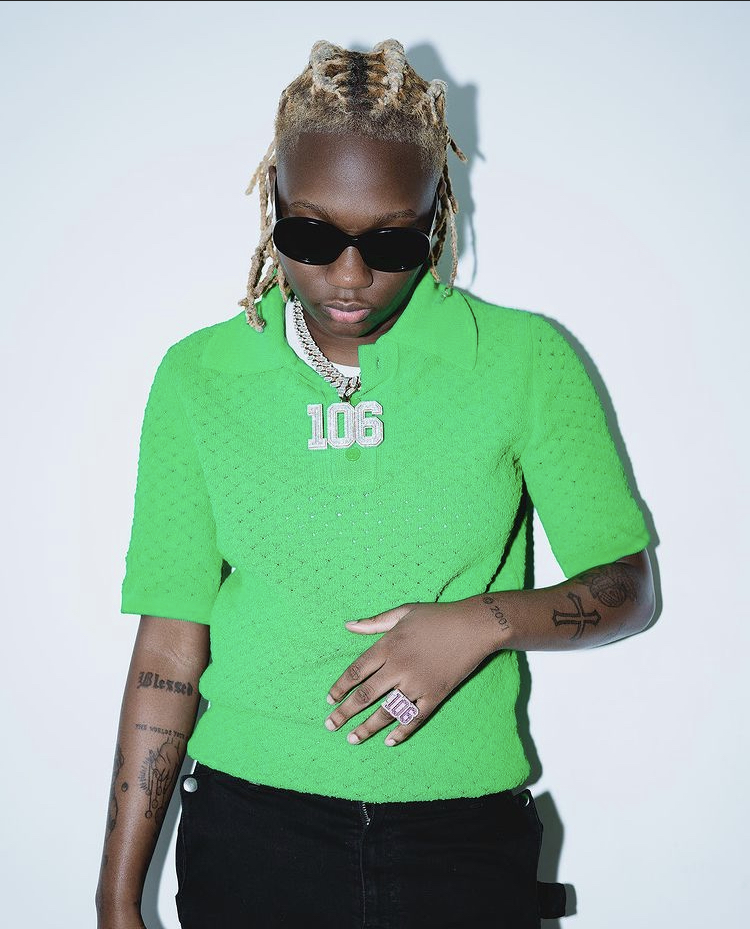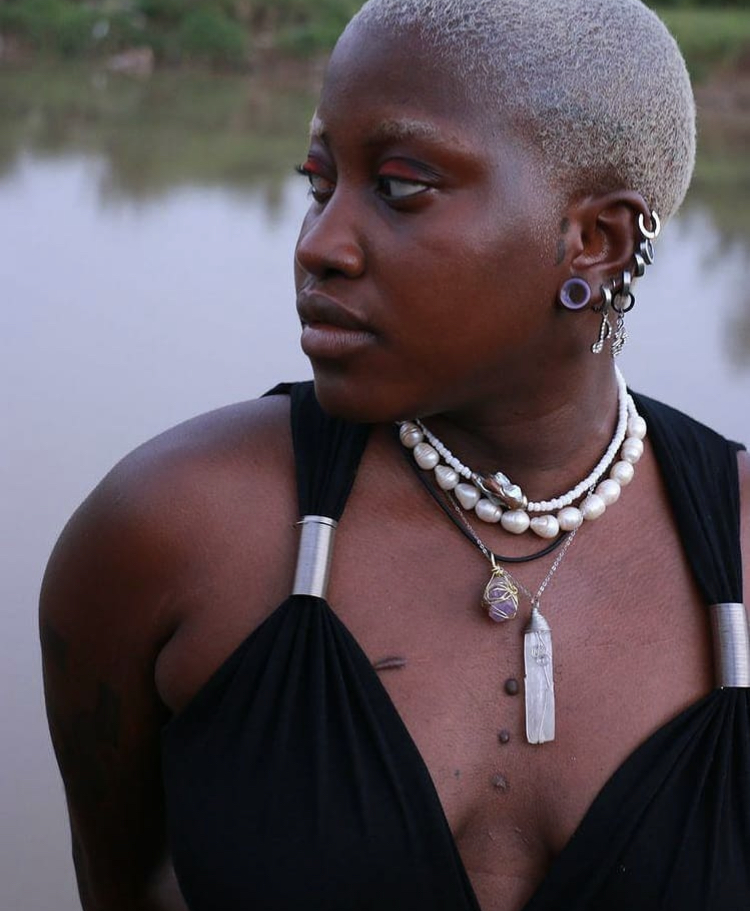For a long time, art has been a valid outlet for creatives to express their ideas, tell their stories, support a cause, and create an impact. Music is one of these outlets and by far one of the most effective tools for artists to publicly advocate and share their experiences, especially through songwriting and spectacular performances.
For these artists, speaking their truth and creating advocacy is the very core of their art. So, their music, by extension, is a conceptual reflection of their identity, their experiences, and their reality.
In Africa, it’s nothing short of bravery to publicly come out as a member of the LGBTQ+ community. Even the most progressive African countries still have laws that prohibit and restrict queer people from living authentically and without hiding.
In this piece, we’re spotlighting artists who are currently taking a bold stand, and creating visibility for queer people in Africa.
Amaarae

While her sound captivates you through its lusciousness, another reason to fall in love with Amaarae’s music is the originality and message. Known to explore themes like wealth, sex, and opulence in her songs, she doesn’t back down from telling stories and exploring several narratives with her music.
Amaarae’s music bodies all that she represents- boldness, sensuality, and fluidity. She balances the beam between her masculinity and femininity, expressing herself exactly how she feels on each track. In her album The Angel you don’t know, she explored both perspectives, giving her audience a front-row experience of her truth. Amaarae’s videos often star colorful, androgynous men, exploring diversity, and portraying as much authenticity as they can. Her music sends a powerful message of visibility to queer Africans.
Dope Saint Jude

As a young South African child growing up in a post-apartheid society, Dope Saint Jude understood marginalization first-hand. Now, she’s making her mark as a feminist, and LGBTQ+ advocate.
The South African rapper’s work is a fusion of social justice, equality, and poetry. From her entrance as a drag king to establishing her career as a solo performing artist, Dope Saint Jude has shown us the value of being strong-willed. Her second EP- Resilient, tells her story from pain through expression and finding your voice.
Speaking with Pan African music, she talks about using her voice for important causes. She says, “ For me, what I’m doing is important because from where I come from, not many women get to this life, get to speak and meet so many people, and have the impact that I know I can have. So I didn’t come to play! I came to make some changes and to change people’s minds and to use my platform to talk about important issues.”
Darkoo

Born Oluwafisayo Isa, the British-Nigerian rapper is currently one of the most promising acts in the music industry. When she’s not making chart-topping singles, she’s making bold statements with her lifestyle. Earlier in her career, a lot of people were very curious about her identity and sexual orientation. Perhaps, rightly so in a country like Nigeria where queer people are regarded as criminals.
Speaking with Vogue UK she says, “People were like, is Darkoo a duo? I’m fluid. I don’t care. People are definitely confused about it, but it just shows that I’m comfortable in myself, and anyone who wants to be can be comfortable in themselves.”
Temmie Ovwasa

As a queer person living in Nigeria, releasing a queer-centric album is no small feat. When Temmie Ovwasa released “E Be Like Say Dem Swear For Me”, it marked a significant moment for their audience and a major part of their journey to self-discovery. The 12-track album captures passion and rebellion, among other themes. Baring themselves, and embracing vulnerability against all odds.
Speaking with New Telegraph on the cultural significance of their album, they say “I’m living my truth while wielding my craft to shed light on the intricacies of being a queer woman in Nigeria. Yes, I admit that there is a fear that comes with the territory. It’s something that I’ve learned to live with; to be openly singing about a woman’s body, being a queer public figure in Nigeria, and championing authenticity of self.”
In a continent where cultures and traditions are still largely rigid, declaring a strong divergent view can be consequential. Hence, we must applaud the sheer bravery and valor of these artists and encourage the visibility and inclusion of queer people in all spaces.